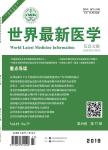Semireplication-competent vesicular stomatitis virus as a novel platform for oncolytic virotherapy
Semireplication-competent vesicular stomatitis virus as a novel platform for oncolytic virotherapy出 版 物:《世界最新医学信息文摘》 (World Latest Medicine Information)
年 卷 期:2015年第5期
页 面:245-245页
学科分类:1002[医学-临床医学] 100214[医学-肿瘤学] 10[医学]
主 题:Vesicular stomatitis virus Oncolytic virus Virotherapy Malignant glioma
摘 要:Among oncolytic viruses, the vesicular stomatitis virus(VSV) is especially potent and a highly promising agent for the treatment of cancer. But, even though effective against multiple tumor entities in preclinical animal models, replicationcompetent VSV exhibits inherent neurovirulence, which has so far hindered clinical development. To overcome this limitation,replication-defective VSV vectors for cancer gene therapy have been tested and proven to be safe. However, gene delivery was inefficient and only minor antitumor efficacy was observed. Here, we present semireplicationcompetent vector systems for VSV(sr VSV), composed of two trans-complementing, propagation-deficient VSV vectors. The de novo generated deletion mutants of the two VSV polymerase proteins P(phosphoprotein) and L(large catalytic subunit), VSVΔP and VSVΔL respectively, were used mutually or in combination with VSVΔG vectors. These sr VSV systems copropagated in vitro and in vivo without recombinatory reversion to replication-competent virus. The sr VSV systems were highly lytic for human glioblastoma cell lines,spheroids, and subcutaneous xenografts. Especially the combination of VSVΔG/VSVΔL vectors was as potent as wild-type VSV(VSV-WT) in vitro and induced long-term tumor regression in vivo without any associated adverse effects. In contrast, 90% of VSV-WT-treated animals succumbed to neurological disease shortly after tumor clearance. Most importantly, even when injected into the brain, VSVΔG/VSVΔL did not show any neurotoxicity. In conclusion, sr VSVis a promising platform for virotherapeutic approaches and also for VSV-based vector vaccines, combining improved safety with an increased coding capacity for therapeutic transgenes, potentially allowing for multipronged approaches.



